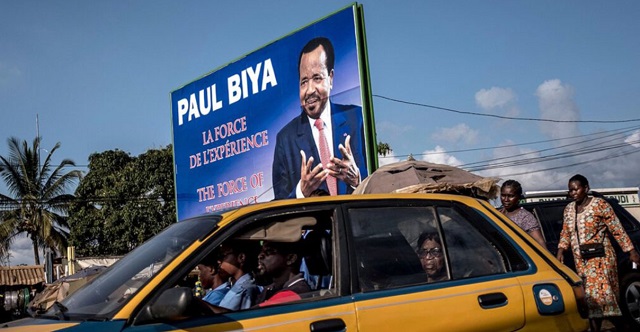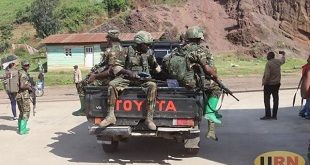
Sub-Saharan Africa is home to many of the world’s longest-ruling heads of state, but civil society and regional blocs may be slowing the trend of extending presidential terms in some areas
| CLAIRE FELTER | Sub-Saharan Africa is home to many of the world’s longest-ruling heads of state. Some postcolonial leaders in the 1960s and 1970s sought to become “president for life,” with several managing to remain in power for three or more terms. By the turn of the twenty-first century, the trend of entrenched leadership had spread across the region, spurring corruption, instability, societal fractures, and economic stagnation. But the trend may be reversing, in part due to sustained pressure by civil society groups and regional blocs.
Many African countries struggled with transfers of power in their first half century after independence. Leaders who gained recognition during national movements for independence consolidated power and bound their own positions in office with their countries’ national identities. By early 2019, three African heads of state had been in power for more than three decades each: Teodoro Obiang Nguema Mbasogo in Equatorial Guinea, Paul Biya in Cameroon, and Yoweri Museveni in Uganda. More than a dozen other African heads of state have been in power for at least ten years. In August 2017, Angolan President Jose Eduardo dos Santos stepped down after thirty-eight years in office, and in November of that year, Zimbabwean President Robert Mugabe was forced from office after thirty-seven years by a military coup. In 2019, Sudan’s Omar al-Bashir was ousted after three decades in power.
Military coups were once common as a means to seize power, with both Mbasogo and Museveni entering their presidencies this way. They have declined during the last two decades; there were twenty-seven successful coups from 1970 to 1982, but only twelve from 2000 to 2012. Since 2012, only Mugabe and Bashir have been ousted in military coups.
Impact on growth and stability
Strong correlations exist between sub-Saharan Africa’s entrenched leadership and its developmental and security challenges, including conflict or instability, stagnant or declining economies, and democratic backsliding. The Economist’s 2019 Democracy Index finds that more than twenty countries in sub-Saharan Africa have authoritarian governments. Rights abuses in the countries with the longest-serving leaders have included secret or arbitrary arrests and detentions, tight restrictions on freedom of expression, and police brutality, according to monitoring groups. Prominent examples include:
Zimbabwe. Once one of the continent’s richest nations, Zimbabwe tumbled under Mugabe to a place of chronic underdevelopment with a long-struggling economy. Mugabe’s alleged misuse of federal funds has been linked to underfunded and dysfunctional government departments and programs. In the wake of a slew of constitutional amendments granting Mugabe broad power, the country experienced drops in life expectancy and per capita income between 1990 and 2005. Two years after his ouster, Mugabe died in Singapore, where he had been receiving medical treatment. Economic instability has continued under Mugabe’s successor, Emmerson Mnangagwa, with a severe currency crisis prompting widespread protests in early 2018. Mnangagwa has also been accused by critics of repressing the opposition.
Democratic Republic of Congo (DRC). Under the three-decade-long dictatorship of Mobutu Sese Seko, the DRC suffered from gross corruption, embezzlement, and neglect of public infrastructure. An economy based almost exclusively on mineral extraction deteriorated as Mobutu forced out foreign-owned companies and embezzled government funds. Laurent Kabila overthrew Mobutu in 1997 but was assassinated in 2001; his son, Joseph, succeeded him, amassing a fortune by stealing state funds and effectively disregarding the provision of public services. A war in the country’s east, considered the world’s deadliest conflict since World War II, continued under his presidency. Kabila stepped down after a December 2018 election, two years after his mandate was set to end, though election observers and many opposition leaders questioned the vote’s legitimacy.
Sudan. Omar al-Bashir came to power in a 1989 military coup that ousted the democratically elected prime minister. He remained in office despite allegations by international and domestic observers of widespread electoral irregularities and fraud. He presided over a decades-long civil war that ended with the south seceding to become the new state of South Sudan in 2011. Bashir was indicted by the International Criminal Court in 2009 on charges of war crimes and crimes against humanity for involvement in attacks on civilians in Darfur. Following months of protests sparked by the rising price of bread, the armed forces pushed Bashir out in April 2019 and established a transitional military council.
Burundi. Human Rights Watch reported that the humanitarian situation in Burundi remained “dire” in 2019, four years after President Pierre Nkurunziza’s decision to run for a third term sparked mass protests. The rights group accused the security services and the ruling party’s youth league of widespread abuses ahead of the May 2020 presidential election. Nkurunziza, in office since 2005, declined to run for a fourth term; and in June 2020, the fifty-five-year-old president died of heart failure. CFR’s Michelle Gavin writes that Nkurunziza’s death could “create new opportunities for a less repressive future.”
 The Independent Uganda: You get the Truth we Pay the Price
The Independent Uganda: You get the Truth we Pay the Price



